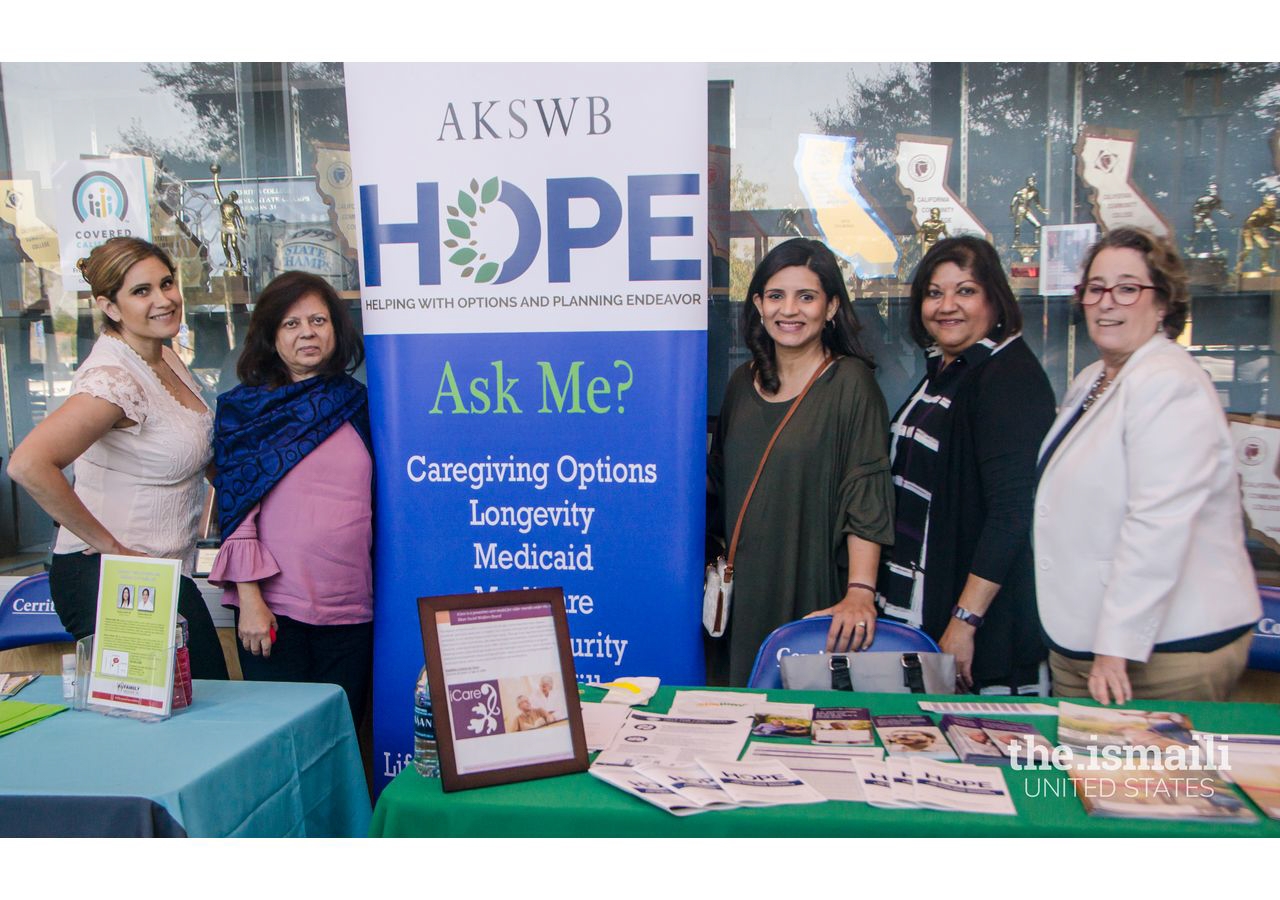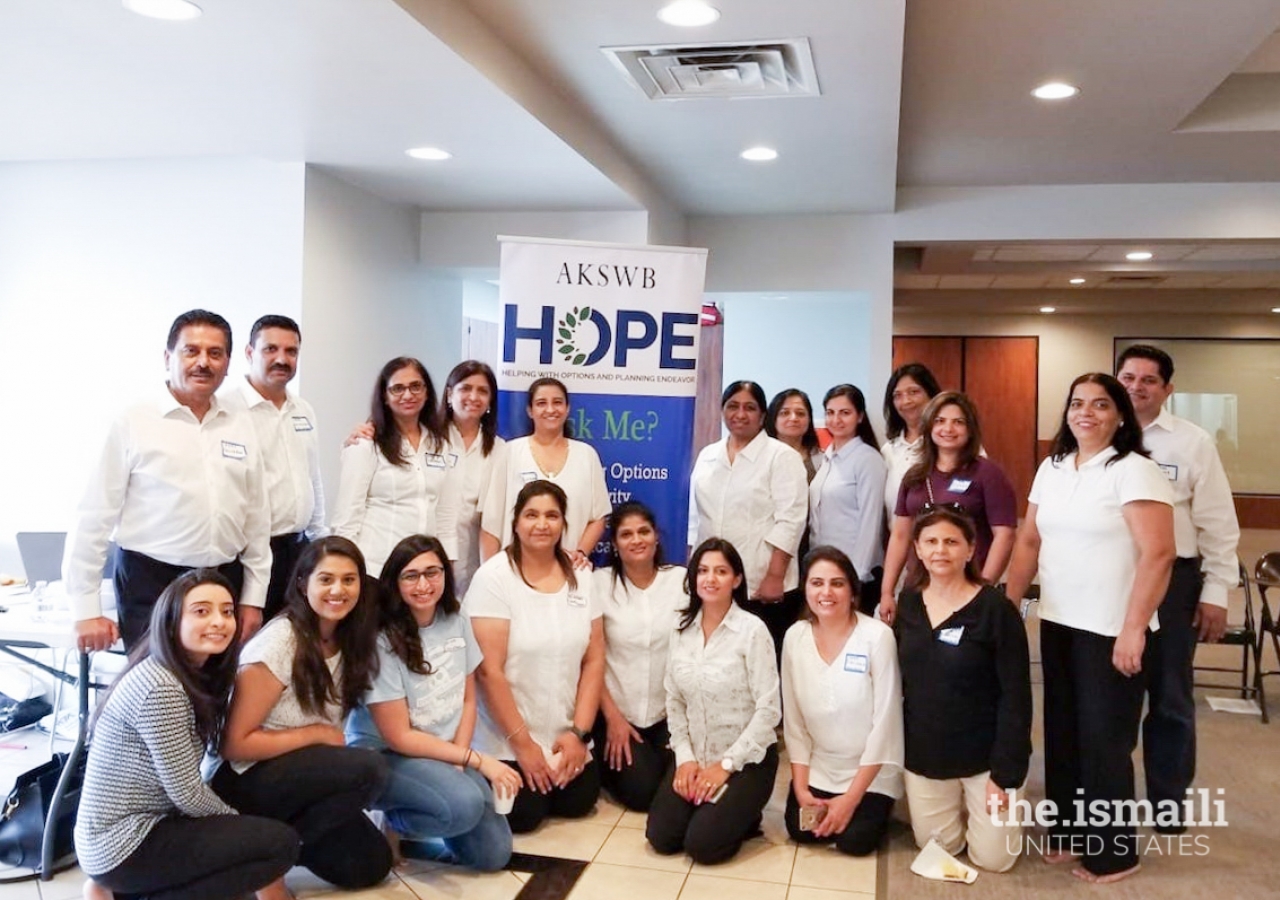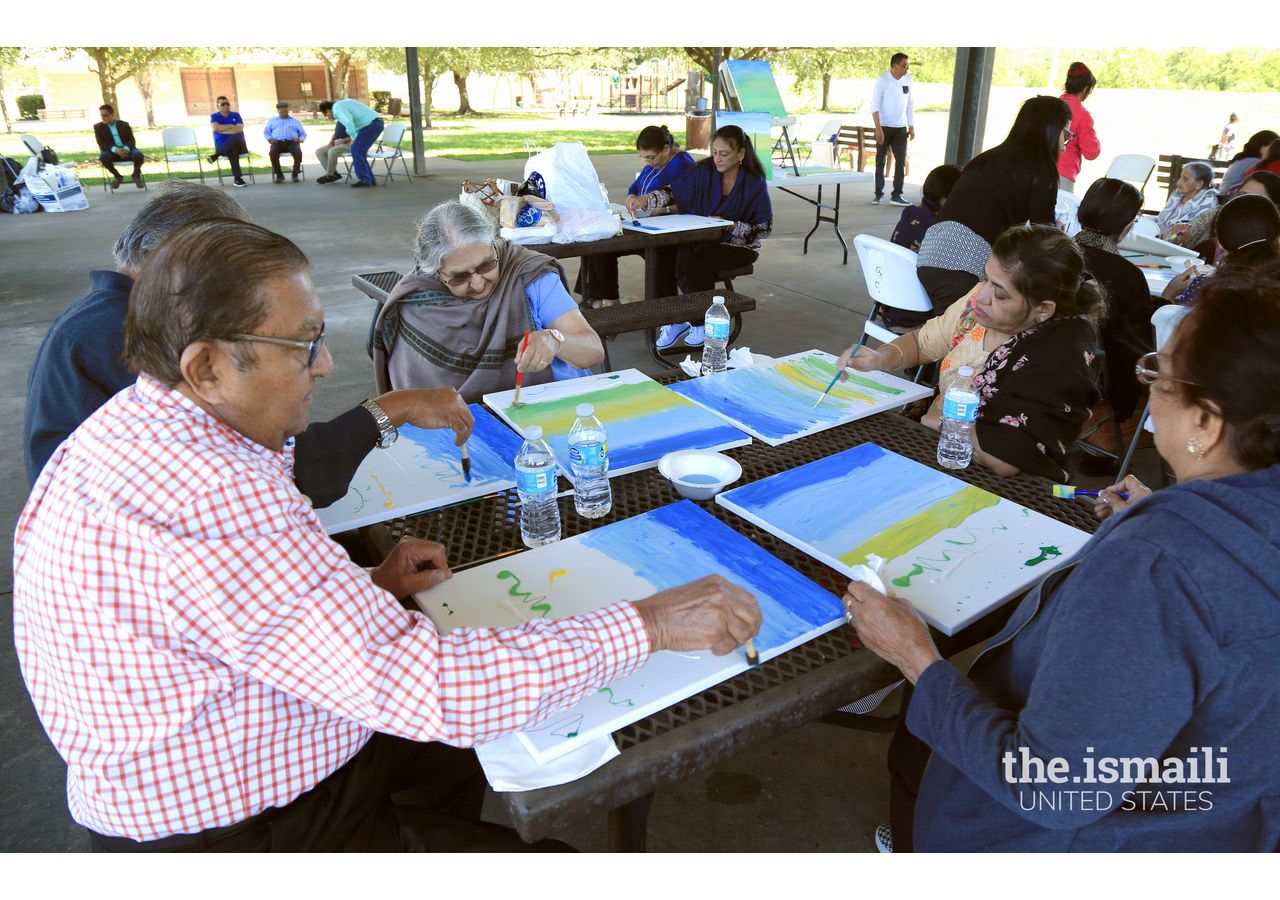Getting old isn’t what it used to be. People are living longer than ever before, and traditional support systems like extended, multi-generational family networks, are more likely to be disrupted by distance and the increasing time demands of the workplace.
Planning for these two trends is an increasingly important priority for the Ismaili community. Helping seniors and their families plan for their aging years, and ensuring that they remain socially engaged are the aims of two separate but complementary Council programs: HOPE and iCare.
While HOPE is a program aimed at aging, it is not just for seniors: its target demographic is anyone in the workforce up to and including retirement. The acronym stands for Helping Options and Planning Endeavor. It’s a two-prong program: one directed at providing support to families caring for their seniors; the other prong is targeted at younger people, providing them the resources they need to plan for their own security in their old age. In both cases, advice and information are provided with discretion, with the goal of facilitating a family’s autonomy and respecting their privacy.
Zohra Momin has been a coordinator and volunteer with the HOPE program for close to four years in the Sugar Land Jamatkhana in Houston. “We want to have people at a place where they have their dignity maintained, and that they are not stressing their family,” she says, explaining that she aims to facilitate each family’s goals for their own quality of life. “Our main focus is giving people options, and letting them decide what is best for them.”
ahmina_kheraj-8327.jpg
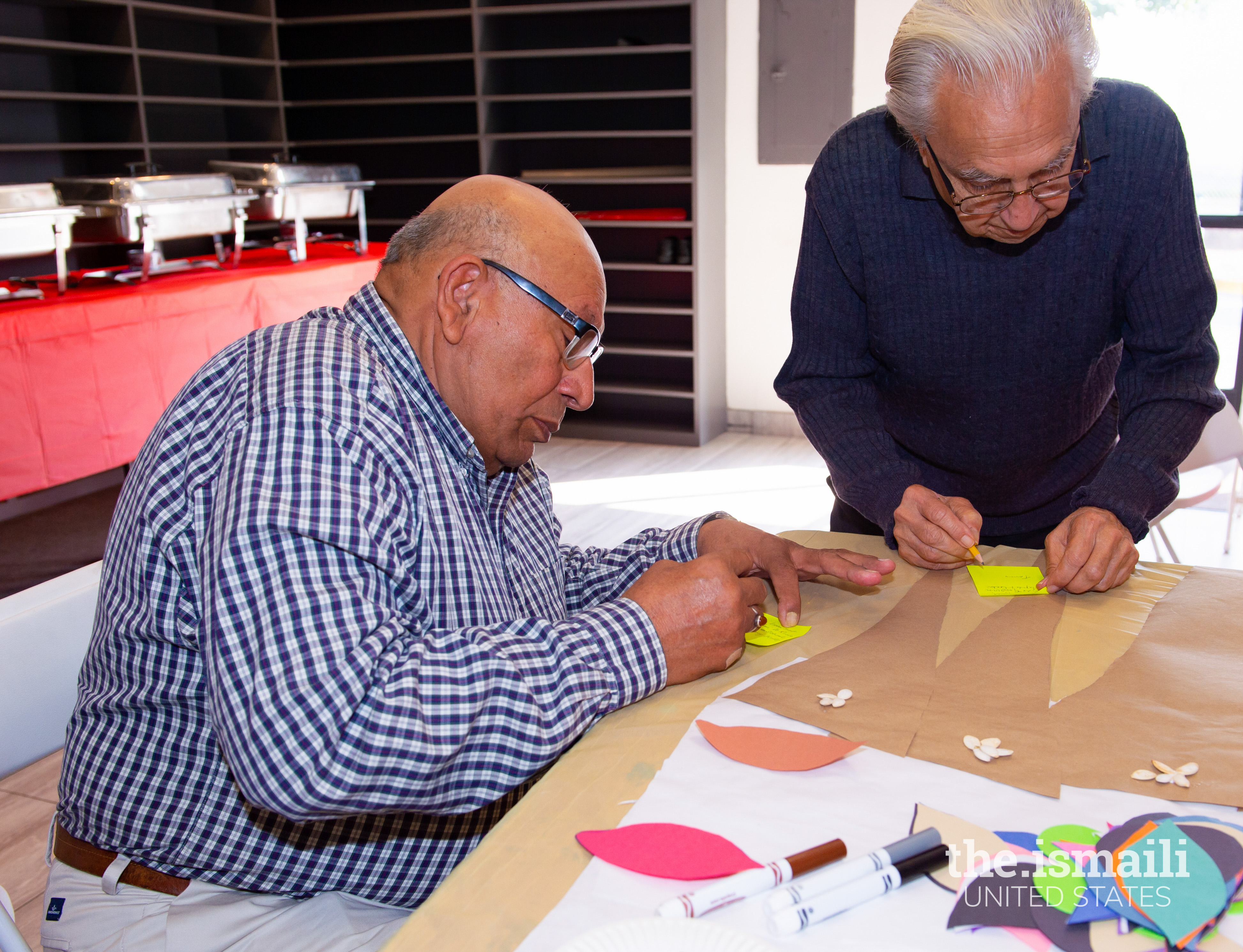
Zohra and her fellow HOPE volunteers act as facilitators, rather than providing direct assistance. Referrals come to them through the Access desk in Jamatkhana. Drawing on a network of subject matter experts, she and her team will coordinate support for people seeking in-home care for seniors or nursing care, health insurance, or applying for government benefits.
Zohra is proud of the successes she and her team have achieved but believes that HOPE can be most effective by preparing for the seniors of tomorrow. “It’s very hard to get people to think about planning for their old age. People like to think they can always put that off.”
Samira Maredia concurs. A fellow Houston-area HOPE volunteer, Samira says that reaching out to younger Jamati members is difficult work, but it is key to the long-term health and security of the community as a whole. She helps organize information sessions on social security and long-term planning aimed at younger members. “We talk about proactive longevity – planning for the future,” she says, adding, “I know when I started working, when I was young, I wasn’t serious about saving for my old age. Young people need to think about maintaining a healthy lifestyle, so they are healthy in their retirement.”
While HOPE focuses on helping families access resources and plan for their desired future, iCARE is geared towards direct outreach to seniors 65 and older. To judge by Alnoor Somji’s enthusiasm, volunteering for the program is a calling. He explains that he had volunteered with many different programs within the Jamat – from disaster management to the Youth and Sports Board, but says, “my heart was always with the seniors.”
Alnoor and the volunteers provide a number of direct outreach activities to benefit the seniors within the Orlando Jamat. This includes weekly check-in phone calls, hospital or in-care social visits, as well as occasionally providing rides to seniors living alone.
There is a need for the work of iCARE to be better known, and better understood, says Alnoor. With younger family members working full-time in demanding jobs, and with cultural and language barriers complicating care, services like iCARE are not a last resort, but a necessity for many families.
“We need to get rid of the stigma – we need to make it easier for families to get help. Right now, people often think that if we are involved, it is because there must be trouble,” he says.
icare_event.jpg
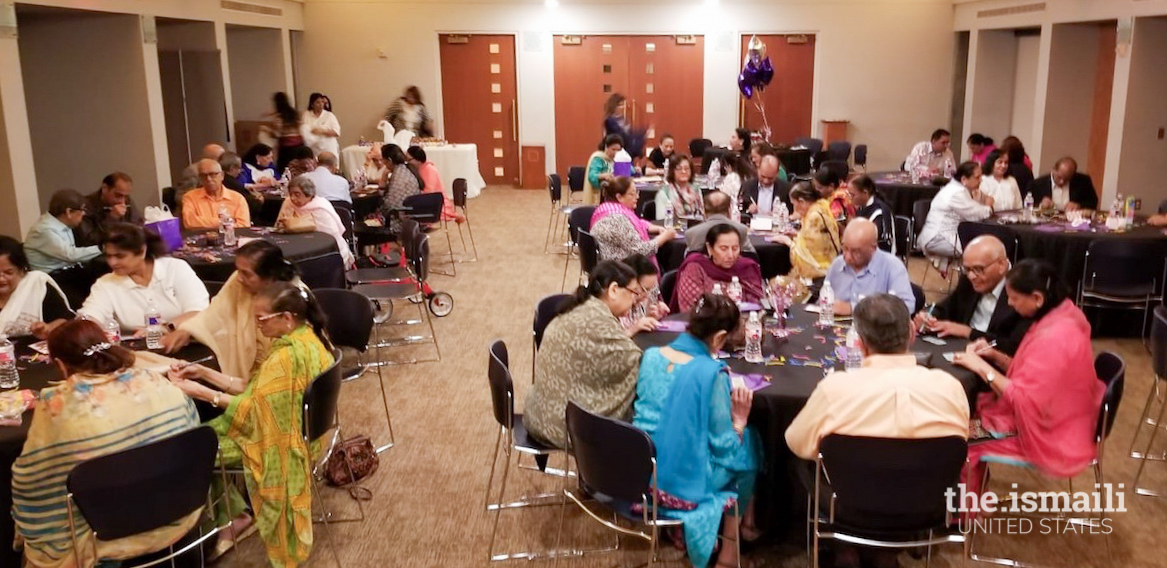
Anwar Budhwani agrees. The Houston-area seniors came to the US only a few years ago, and do not speak English. He is effusive about the iCARE and HOPE volunteers who have helped him. He has had a number of medical problems since arriving in the United States, but volunteers have supported him, and followed up with him to check on his progress. “I would tell anyone coming here, as if they were my younger brother, to listen [to these volunteers] because they are there to help you,” he says. “I am very lucky to have been born in an Ismaili family, that we have these supports.”
“Family” is a word that iCare volunteer Samira Chagpar uses a lot to describe her work with the program, for which she has been volunteering since its genesis as the Aging Gracefully Initiative in 2009. The San Gabriel, California, resident was motivated, she explains, by her own mother’s difficulties with aging, for which there was limited institutional support at that time. Samira works with a small core of volunteers to reach out to seniors within the San Gabriel region. They call the seniors on their list regularly, visit them in their homes, and encourage them to attend Jamati events. She prefers to meet them in their homes, and listen to their stories – even when she’s heard them many times before.
Deeply connected and in tune with their needs, Samira knows that some tend to get anxious in the evening when it gets dark early, and others are eager to hear news from the goings-on in Jamatkhana. “I love going to speak to the seniors, “ Samira says, and “For every little amount of love that I am able to give them, they give so much more to me. That is what keeps me coming back.”

